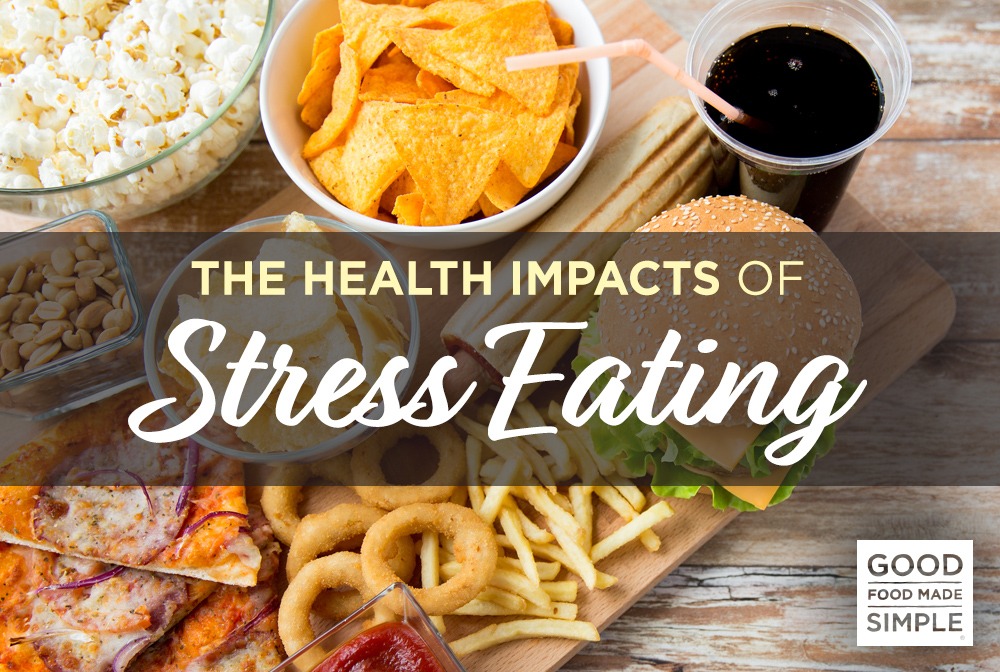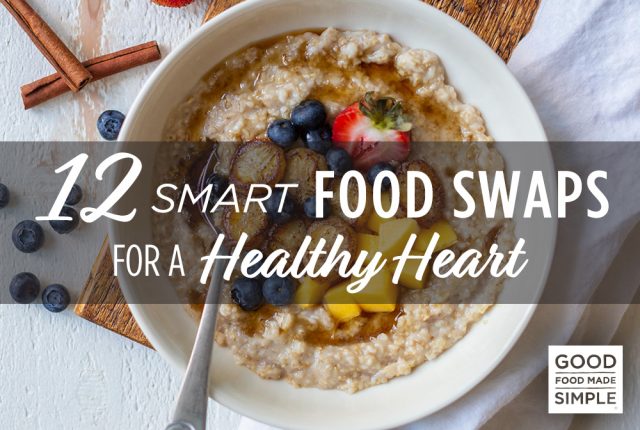
25 Active Date Ideas
While going on dates can certainly be fun, a typical night out with a romantic partner often ends up being focused on eating ...
read more
During this “new normal” many of us may have let our health and wellness goals fall to the wayside. One major change in your health goals may have something to do with stress eating. Shifts in our typical dietary habits are one of the most common changes.
Specifically, stress-eating has become a popular coping mechanism as news related to the coronavirus continues to unfold. In turn, this has caused a number of people to experience significant health ramifications. These changes can impacted our mental, emotional, and physical well-being.
Whether you have acknowledged your stress-eating or not, it’s important to be aware of the negative effects. Read on to learn about how stress eating may be impacting your overall well-being!
One of the more obvious health impacts of stress-eating is weight gain. Emotional eating tends to push people towards high-fat, surgery foods. They are often referred to as “comfort foods.” This is due to the release of certain stress hormones such as cortisol, which works to increase appetite and motivation. Consequently, this results in you eating more food than normal.
High levels of cortisol and insulin are the hormone responsible for absorbing the extra sugar in your blood. When combined with the hunger hormone ghrelin, we tend to turn to high-calorie junk foods as a way to ease our nerves.
While stress-eating has proven to be effective in counteracting anxiety, it is not beneficial for preventing weight gain, which is why it’s important to monitor your food intake and calorie consumption.
What You Can Do: To avoid sabotaging any weight loss goals you may have and stop those additional pounds from accumulating, practice intuitive eating. By doing this, you’ll be able to further monitor your food intake and your body’s needs.
Beyond that, be sure to keep up with physical activity. Hiking, swimming, running, or a simple at-home workout are all great ways to combat those extra calories caused by stress-eating!
A clean, clear, healthy-looking complexion isn’t only dependent on the skincare routine you follow and the products you use. Rather, it pertains to the ways in which you care for other parts of your body like your immune and digestive system.
When you eat foods that have a high glycemic index, you’re causing your blood sugar to spike rapidly. When this happens, your body produces more insulin, which can trigger inflammation in the skin and sometimes can cause blemishes to occur, according to studies.
Additionally, high-cortisol levels can often send your body’s sebum (oil) production into overdrive. Therefore, it’s easy to understand why stress-eating can wreak havoc on our skin.
What You Can Do: It’s a good idea to introduce low glycemic index foods into your diet. Foods such as fruits, vegetables, nuts and unrefined carbohydrates better support your immune system and keep insulin levels low.
Aside from that, you’ll also want to focus on skincare. To maximize results, consider using specialized acne treatment products in your skincare regimen a few times a week. This will help to target blemishes and breakouts more effectively and prevent future acne from occurring.
The integral relationship between the foods we eat and our mental health is an ongoing topic of research. The connection between blood sugar fluctuations and nutritional imbalances can have an impact on our mind and general well-being.
An improper diet that comes as a result of stress-eating can be detrimental to your mood. The minimal nutrition that often stems from stress eating can cause you to miss out on vitamins, minerals, and other necessary nutrients.
Your gut holds 90% of your serotonin receptors, which are the neurotransmitters responsible for regulating your mood. That being said, poor gut health caused by stress-eating may be reducing your energy levels and worsening your mood.
What You Can Do: Although it may be easier said than done, try limiting your intake of processed foods. This can do wonders for your mind and body. Remember to pay attention to the way certain foods make you feel by jotting down your thoughts in a food and mood journal.
Additionally, try to make a point to practice other mindfulness activities. Even if it’s only for ten minutes a day, taking some time out of your schedule to practice yoga or meditation will be a sure-fire way to improve your mood!
It’s important to find healthy coping mechanisms that support both your wellness goals and overall well-being. Instead of relieving stress through emotional eating, try following more mindful practices like the ones listed above. After all, your health does deserve your utmost attention! It’s never too late to start implementing routines that make you feel good!

25 Active Date Ideas
While going on dates can certainly be fun, a typical night out with a romantic partner often ends up being focused on eating ...
read more
12 Smart Food Swaps For A Healthy Heart
February is American Heart Month, and one of the best ways to maintain good heart health is to watch what you eat. Instead of...
read more
Starting the New Year With the ‘Right’ Mindset
With the holiday finally over and the new year upon us, I’d be shocked if you haven’t thought about New Year's Resoluti...
read more